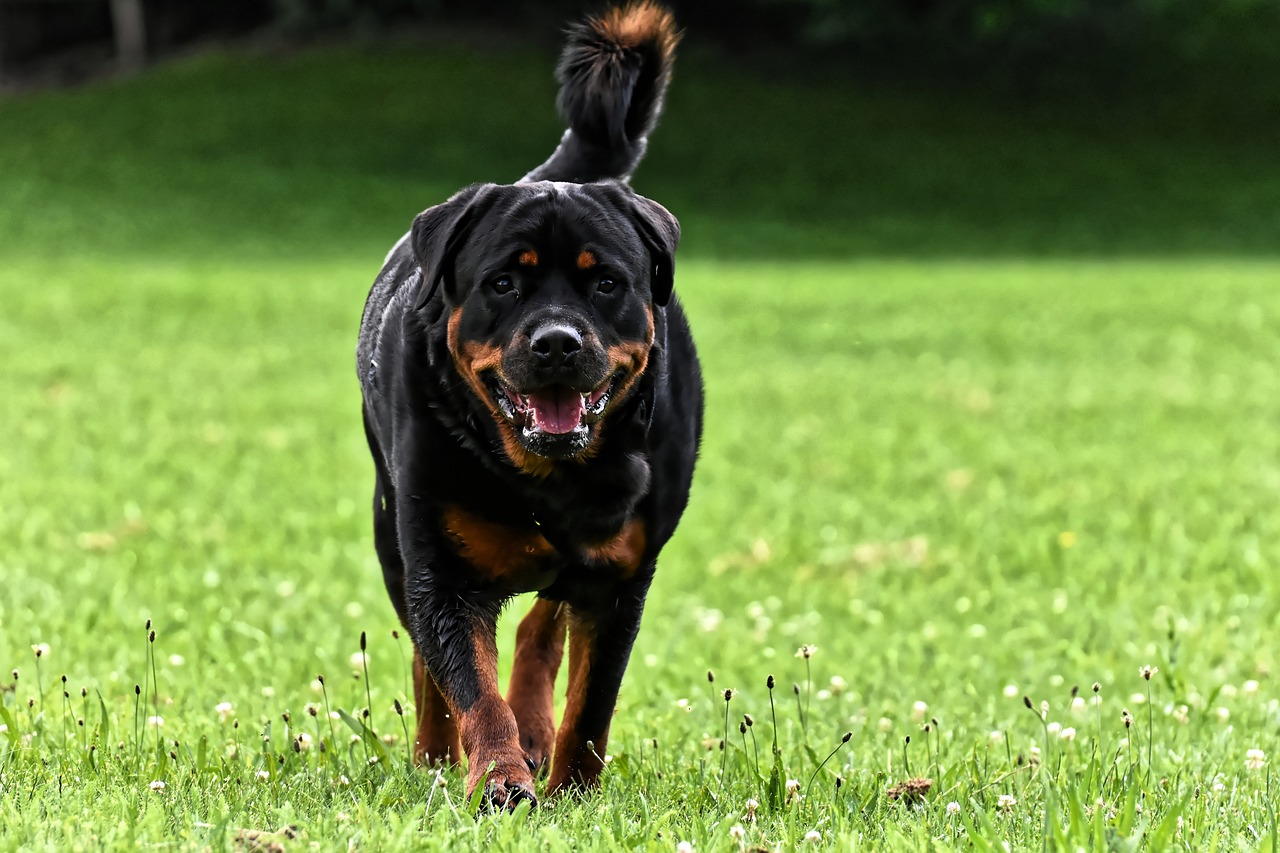Rottweilers are a wonderful and loyal breed of dog known for their strength, intelligence, and protective nature. Like all dogs, Rottweilers have specific needs when it comes to bathroom breaks. Taking your Rottweiler outside to pee is an essential part of responsible pet ownership, and the frequency at which you do so can vary based on your dog’s age. In this article, we will discuss how often you should take a Rottweiler outside to pee, with guidelines for puppies, adult dogs, and senior Rottweilers.
Understanding Your Rottweiler’s Needs
Before we delve into the specific guidelines for different age groups, it’s important to understand why your Rottweiler needs regular bathroom breaks. Dogs, including Rottweilers, have a natural instinct to keep their living space clean. They prefer not to eliminate waste in their immediate surroundings. However, they also have limited control over their bladder and bowels, which means they need to relieve themselves regularly.
Taking your Rottweiler outside to pee not only prevents accidents inside your home but also provides an opportunity for exercise and mental stimulation. It is also a chance for bonding and socialization. Understanding your Rottweiler’s needs and being attentive to their signals is crucial for their overall well-being and your relationship with them.
Guidelines for Different Age Groups
1. Rottweiler Puppies (Up to 6 Months)
Puppies are adorable bundles of energy and curiosity, but they also have small bladders and less control over their bodily functions compared to adult dogs. Here are some guidelines for taking Rottweiler puppies outside to pee:
a. Frequent Bathroom Breaks: Puppies typically need to pee more often than adult dogs. As a general rule of thumb, take your Rottweiler puppy outside to pee every 1-2 hours during the day. This helps prevent accidents inside your home and reinforces the idea that the outdoors is the appropriate place to go.
b. After Eating, Drinking, or Playing: Puppies often need to relieve themselves shortly after eating, drinking, or engaging in vigorous play. Be prepared to take your Rottweiler puppy out within 15-30 minutes after any of these activities.
c. During the Night: Puppies have limited bladder control at night, so they may need to go out once or twice during the night. Initially, set an alarm to wake up and take your puppy outside. Gradually, as your puppy gets older, they will be able to hold it for longer periods.
d. Crate Training: Crate training can be a valuable tool for potty training Rottweiler puppies. A properly sized crate can help limit accidents and encourage your puppy to “hold it” until they are taken outside.
e. Positive Reinforcement: Always use positive reinforcement, such as praise and treats, when your Rottweiler puppy successfully pees outside. This helps them associate outdoor potty breaks with positive experiences.
2. Adult Rottweilers (6 Months to 7 Years)
Adult Rottweilers have better bladder control and can typically hold it for longer periods compared to puppies. However, they still need regular bathroom breaks to stay comfortable and healthy. Here are some guidelines for taking adult Rottweilers outside to pee:
a. Routine Schedule: Establish a regular schedule for bathroom breaks. Most adult Rottweilers can go out to pee every 4-6 hours during the day. Stick to a consistent routine to help your dog anticipate when it’s time to go outside.
b. Morning and Evening Walks: In addition to regular bathroom breaks, Rottweilers benefit from morning and evening walks for exercise and mental stimulation. These walks also provide opportunities for them to relieve themselves.
c. Signals and Cues: Pay attention to your Rottweiler’s signals. If your dog starts sniffing around, circling, or whining, it’s a sign that they need to go out. Be responsive to these cues to avoid accidents.
d. Transition to Longer Holds: As your Rottweiler matures, they can hold it for longer periods. You can gradually increase the time between bathroom breaks, but always consider your individual dog’s needs and preferences.
3. Senior Dogs (7 Years and Older)
Senior Rottweilers may experience age-related changes in their bladder and bowel control. As they age, they may need more frequent bathroom breaks and extra care. Here are some guidelines for taking senior Rottweilers outside to pee:
a. Increased Frequency: Senior Rottweilers may need to go out more often than adult dogs. Aim for bathroom breaks every 3-4 hours during the day, and consider additional nighttime outings if necessary.
b. Accommodate Mobility Issues: Senior dogs may have mobility issues or arthritis that make it challenging to get outside quickly. Be patient and provide assistance if needed, such as using ramps or carrying your dog.
c. Monitor Health: Age-related health issues can affect bladder and bowel control. Keep an eye out for any signs of urinary tract infections, incontinence, or other health problems. Consult your veterinarian if you notice any concerning symptoms.
d. Senior-Specific Diet: Some senior dogs benefit from senior-specific diets that support their overall health and digestion. Consult with your veterinarian to determine the best diet for your senior Rottweiler.
e. Comfortable Sleeping Area: Make sure your senior Rottweiler has a comfortable sleeping area with easy access to the outdoors. This can help them avoid accidents if they need to go out during the night.
Conclusion
Taking your Rottweiler outside to pee is an essential aspect of responsible dog ownership. Understanding your dog’s age-specific needs and following the guidelines outlined in this article can help ensure that your Rottweiler remains comfortable, healthy, and well-trained. Whether you have a playful Rottweiler puppy, an active adult, or a senior Rottweiler, being attentive to their bathroom needs is key to maintaining a strong and loving bond with your canine companion.

 Toledo, United States.
Toledo, United States.